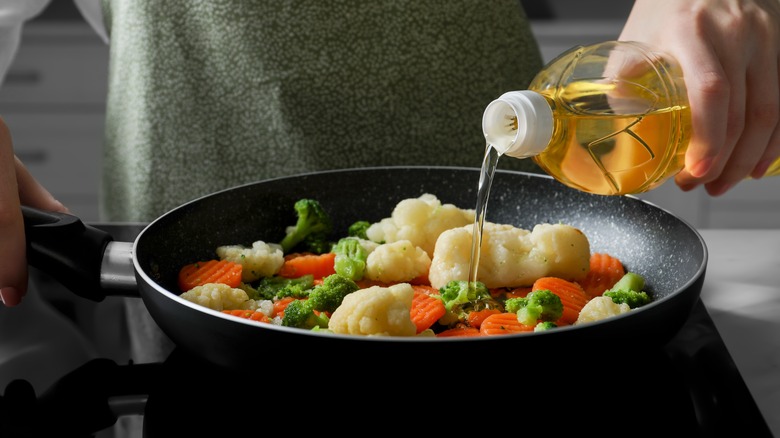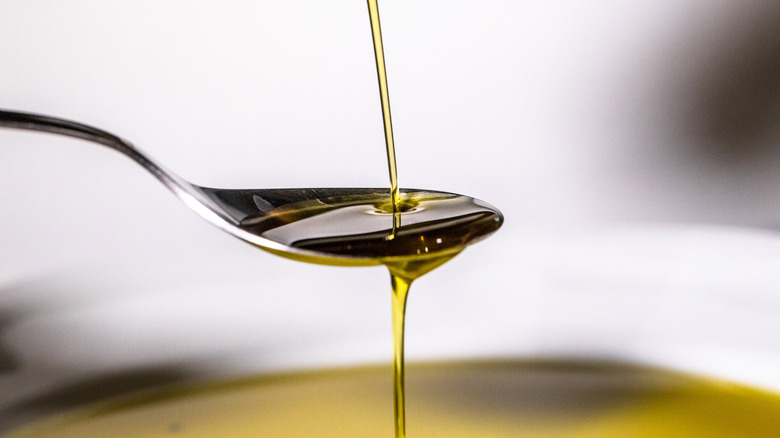What Is The Best Substitute For Vegetable Oil?
Vegetable oil is a kitchen staple thanks to its neutral flavor and high smoke point. If you've run out, the simplest swap that will work for pretty much any cooking task is another neutral oil, such as canola, safflower, or grapeseed oil. These have the same properties as vegetable oil, which may even already include them on its ingredients list, and can be used in exactly the same ways and quantities. If you don't have any of these alternatives, then the question of what you're making comes into play when considering other potential swaps.
If you're making baked goods, melted butter is a great 1:1 substitute. Olive oil can also work, but keep in mind it will impart a different flavor. For healthier swaps, you can replace half of the vegetable oil with applesauce or mashed bananas. These ingredients add moisture while reducing fat, but they may slightly alter the consistency or flavor of your baked goods. Other alternatives include Greek yogurt, sour cream, or even mayonnaise, which can be swapped in a 1:1 ratio for vegetable oil, though they can also change the final product's taste or texture, depending on what you're baking.
For cooking, olive oil, ghee, or even lard can make excellent, albeit slightly flavored, substitutes. While these may impart a distinct taste, they work well for sautéing or roasting. For salad dressings, olive or avocado oil are great choices. Some other oils, like walnut or sesame, can be used as well, but are best-suited for recipes where you want to highlight their unique flavors.
Vegetable oil substitutes you may want to avoid
If you are deep frying fish or making anything that requires high heat, your options for replacing vegetable oil become a bit more limited. Oils with a low smoke point, like flaxseed, walnut, or unrefined avocado oil, won't work well for high-temperature cooking, as they can burn quickly, leaving a bitter or unpleasant flavor behind. Similarly, while butter can add richness to a dish, it burns easily at high temperatures due to its milk solids. Ghee, or clarified butter, is a better option for frying because the milk solids are removed, giving it a higher smoke point. Generally, though, oils that are refined, such as safflower oil, which has a smoke point of 510 degrees Fahrenheit, can still serve as reliable swaps in these situations.
Olive oil and other flavored oils, such as sesame oil, aren't great options for high-heat frying, but can work well in certain cases, like in dressings, marinades, or low-heat cooking. However, keep in mind that their distinct flavors will come through in the dish, so they aren't the best substitutes when you're looking for something neutral. For deep frying or baking, shortening can also be a useful alternative. Note that it lacks the liquidity of oils, though, which can be an issue when you need a smoother texture or more fluid consistency, such as in dressings or marinades.

